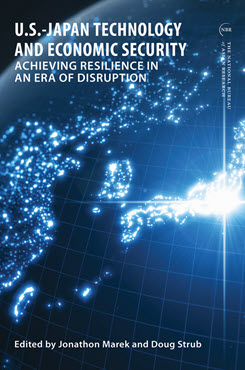Essay in NBR Special Report 116
Countering Economic Coercion
This essay analyzes countermeasures to economic coercion both theoretically and practically and draws implications for Japanese strategy and U.S.-Japan cooperation.
EXECUTIVE SUMMARY
MAIN ARGUMENT
The theoretical and technical challenges in assessing the effectiveness of countermeasures to economic coercion should not diminish the importance of such analysis. The freedom of countries to choose their own course of action without fear of being punished is the fundamental basis of the liberal international order. There are two main approaches to counter economic coercion: deterrence by denial and deterrence by punishment. While the latter is likely to be deployed more quickly and can be politically popular, the former offers a long-term solution and carries less risk of escalation. Japan has experienced two major cases of economic coercion since 2010 and countered them by diversifying either demand or supply. Both countermeasures have been generally effective. Japan has continued to develop preemptive and reactive measures, including passing the Economic Security Promotion Act in 2022 and leading international cooperation, especially with the U.S. Strengthening supply chains and creating collective mechanisms for managing times of disruption provide a long-term solution that has less negative impact than short-term retaliatory measures. Moreover, this approach advances Japan’s broader foreign policy goal of protecting a free and open Indo-Pacific.
POLICY IMPLICATIONS
To maintain the momentum of their efforts to counter economic coercion collectively, the U.S. and Japan will need to address three potential challenges for policy coordination:
- The two countries’ views on free trade have diverged in the past few years. While Japan still prioritizes the principles of free trade, the U.S. seems to have shifted away from traditional free-trade approaches.
- Whereas Japan focuses on denial strategies, U.S. policies traditionally rely on punitive measures.
- Japan and the U.S. could disagree on the meaning of strengthening supply chains or the definition of national security, driven by different degrees of protectionism in their economic and industrial policies.
Mariko Togashi is a Visiting Research Fellow at the Institute of Geoeconomics. Prior to her current position, she was a Research Fellow for Japanese Security and Defence Policy and a Matsumoto-Samata Fellow at the International Institute for Strategic Studies in London, focusing on Japan’s economic security policy. She also worked at the Edwin O. Reischauer Center for East Asian Studies, focusing on the economic security of the United States, Japan, and China.



 Achieving Resilience in an Era of Disruption
Achieving Resilience in an Era of Disruption